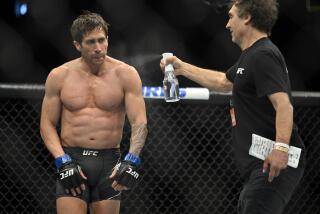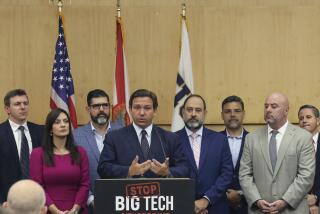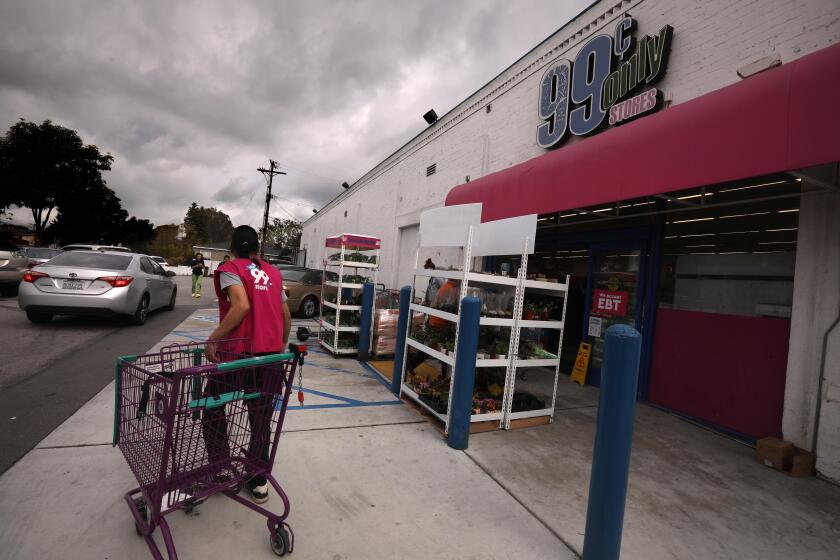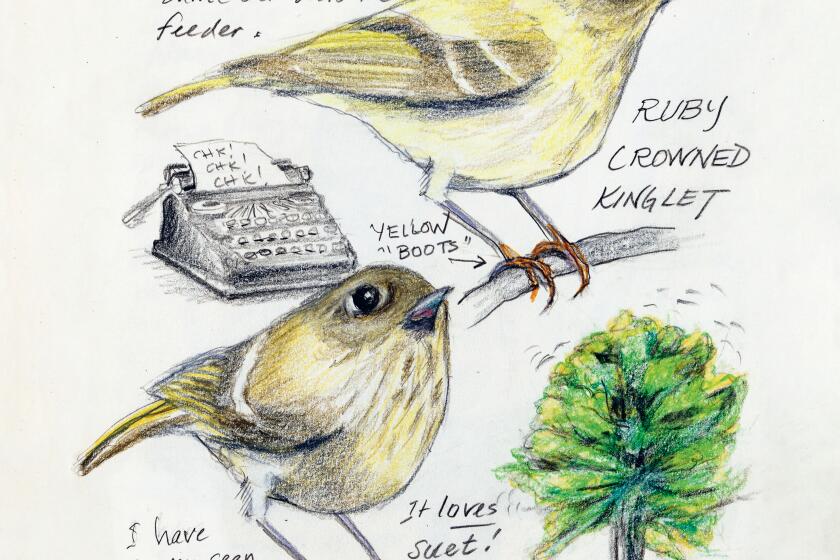With ‘Innocence of Muslims’ ruling, 9th Circuit opens a copyright can of worms
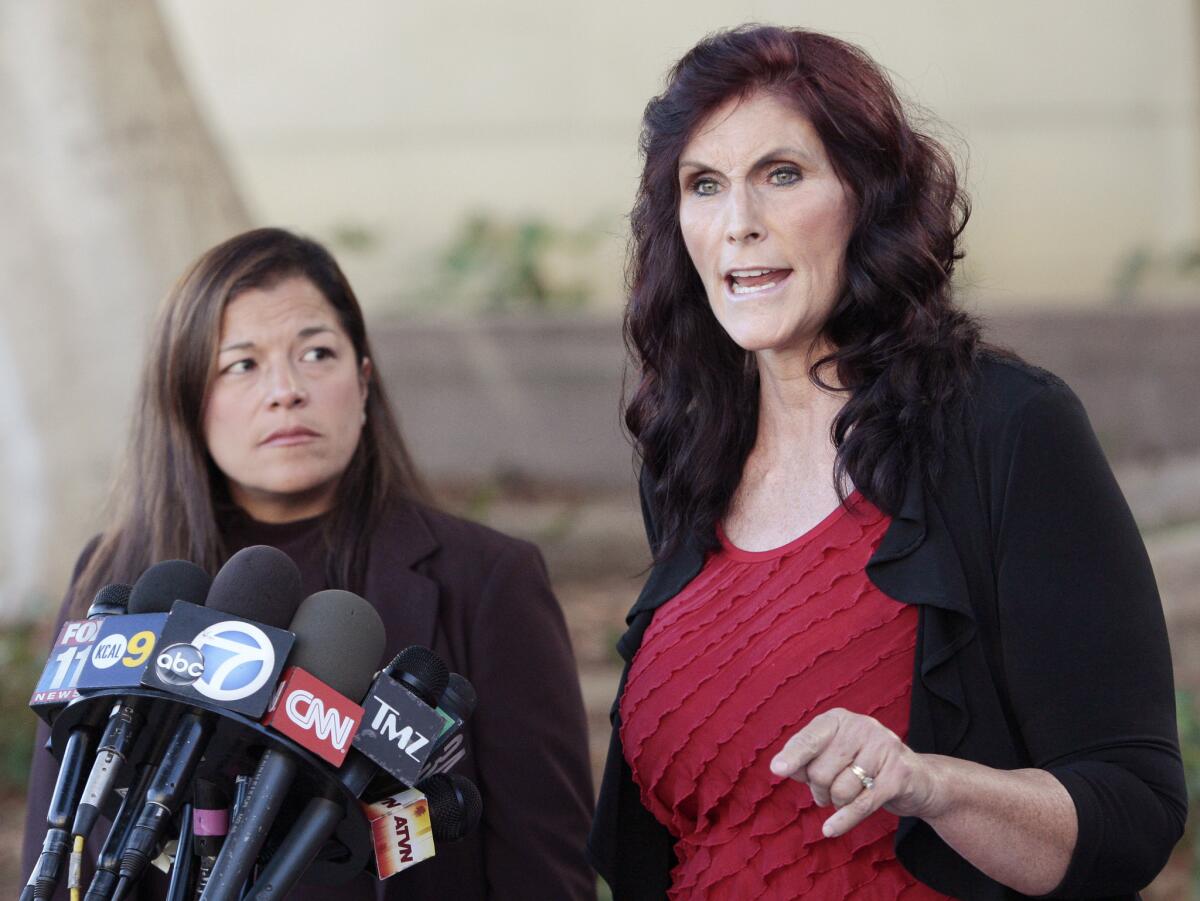
This post has been updated.
While Hollywood executives and film stars chatter about who’s going to win Oscars, the buzz in geekier circles is focused on a low-budget film that, despite being at the other end of the quality scale from “Gravity” and “12 Years a Slave,” could set a worrisome legal precedent.
The 13-minute trailer for “Innocence of Muslims,” a crude piece of anti-Islamic agit-prop, is best known for triggering outraged protests across the Middle East and northern Africa. One Egyptian cleric issued a fatwa calling for the death of every actor in it, giving a whole new meaning to the idea of shooting a movie.
An actress in the trailer, Cindy Lee Garcia, persuaded the U.S. 9th Circuit Court of Appeals to do something the Muslim protesters could not: force YouTube to take down all copies of the film from its site, and bar any duplicates from being uploaded. Google (which owns YouTube) is appealing, but in the meantime the “Innocence of Muslims” trailer has vanished from the site.
In a ruling released this week, Chief Judge Alex Kozinski declared for a split three-judge panel that Garcia held a copyright in her performance despite appearing in only five seconds of the trailer, writing none of her own lines and even having part of her dialog overdubbed by someone else. The copyright Garcia holds, which is in addition to the producers’ copyrights over the recorded film, gives her the right to limit where her work will be publicly performed.
Garcia’s right also trumps any 1st Amendment argument in favor of leaving the trailer online, despite the well-documented public interest, Kozinski held.
Although the U.S. government, among others, has argued that actors’ performances are eligible for copyright protection, it’s not exactly a consensus position. In fact, the dissenting judge in the case, N. Randy Smith, accused the panel’s majority of writing new law so Garcia could win the case.
“We have never held that an actress’ performance could be copyrightable,” Smith wrote. Citing research by film copyright scholar F. Jay Dougherty, he added that there is little support in earlier rulings or U.S. statutes for the notion that performers are “authors of an audiovisual work” entitled to copyright protection.
Kozinski, however, set a low bar for deciding whether a bit of acting could be protected.
“An actor’s performance, when fixed, is copyrightable if it evinces ‘some minimal degree of creativity ... no matter how crude, humble or obvious it might be,’ ” Kozinski wrote, quoting a 1991 Supreme Court decision on telephone white pages (hint: they’re not entitled to copyrights). “That is true whether the actor speaks, is dubbed over or, like Buster Keaton, performs without any words at all.”
The chief judge made it clear in his ruling that most actors won’t have the kind of power that he granted Garcia. That’s because actors implicitly give filmmakers a license to use their performance when they agree to join the cast. That license is a broad one, Kozinski wrote, and ordinarily, an actor doesn’t have the power to force a filmmaker to tailor a movie to his or her liking.
What makes Garcia unusual, in Kozinski’s view, is that Mark Basseley Youssef, the film’s writer and producer, hired her under false pretenses. He lied about the film he was making, saying it was a desert adventure. That deception voided that license, giving Garcia the power to halt the film’s display.
One other unusual feature of the ruling: Kozinski ordered YouTube to block the entire work, not just Garcia’s few seconds. In other words, he gave an actress with a bit part leverage over the whole film.
[Updated, March 1, 8:10 a.m.: The three-judge panel quietly eliminated that quirk late Friday afternoon. It issued a modified take-down-and-stay-down order that “does not preclude the posting or display of any version of ‘Innocence of Muslims’ that does not include Cindy Lee Garcia’s performance.” Kozinski evidently recognized that Garcia’s copyrights do not extend to portions of the film she’s not in.]
Hollywood studio executives say they’re not worried about the implications of the ruling. That’s because their contracts stipulate that actors are working for hire, which means they have no copyrights, and that even if they weren’t working for hire, they assigned their copyrights to the production company.
Tech advocates were not so sanguine.
“Based on this ruling, anyone who contributes creative expression to a larger copyrighted work potentially may have an independent copyright claim against the work’s distribution and performance,” opined Andrew McDiarmid of the Center for Democracy & Technology. “In the case of a movie, for example, adjudicating these claims would require careful case-by-case examination of the contract, written or oral, between each bit player and the moviemakers. Beyond that, moreover, the notion that an individual actor may have a copyright interest in her performance poses huge problems in the context of the DMCA’s notice-and-takedown provisions.”
Wrote Corryne McSherry of the Electronic Frontier Foundation: “Garcia is claiming a copyright interest in her brief performance, a novel theory and one that doesn’t work well here. After all, Garcia herself admits she had no creative control over the movie, but simply performed the lines given to her. There may be a context where an actor could assert some species of authorship, but this doesn’t seem to be one of them. Moviemakers of all kinds should be worried indeed.”
The most intriguing thing to me is the potential for a whole new class of copyright claims. Could an actor (or a studio that holds the copyrights to his work) sue when another actor parrots a performance he’s famous for? What about someone with a signature bit of emoting, a la Curly Howard in the Three Stooges -- could that person get an injunction against copycats?
And just what constitutes a protectable performance? Distinctive post-touchdown mugging for the camera? An iconic spit-take? After all, under Kozinski’s framework, it doesn’t have to be long or audible -- just creative.
ALSO:
Should a death-row inmate’s life hinge on an IQ test?
Note to Atty. Gen. Holder: Even bad laws merit a defense
How Lego earned the wrath of the ‘gender neutral toys’ crowd
Follow Jon Healey on Twitter @jcahealey and Google+
More to Read
A cure for the common opinion
Get thought-provoking perspectives with our weekly newsletter.
You may occasionally receive promotional content from the Los Angeles Times.

